The Best Albums of January 2024
Photos courtesy of Dillon Howl, Cheekface & Tonje Thilesen
The first month of 2024 is over, but it didn’t take long for January to hit the ground running and give us an incredible slate of new albums to gush over. From the continued brilliance of Kali Uchis to the oddball triumphs of Cheekface to longtime favorites like Future Islands and Ty Segall maintaining dazzling consistency, we’re looking back at eight albums that defined the last 31 days. Without further ado, here are the best albums of January 2024.
Cheekface: It’s Sorted
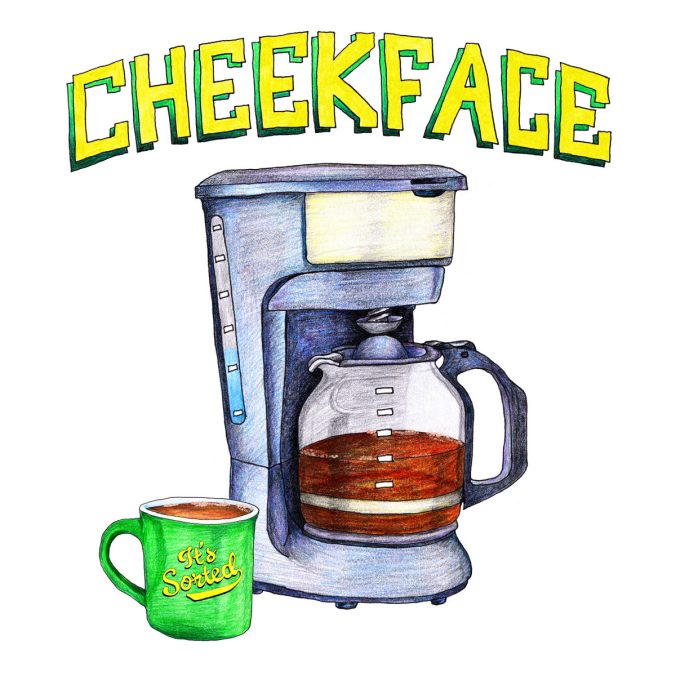 On It’s Sorted, Cheekface gathers up all of those wandering impulses and channels them back into sounding like Cheekface. On “Popular 2,” they deliver the platonic ideal of a Cheekface song in the form of a brisk report on the Ring doorbell panopticon that is the American suburbs. Katz chirps “Hey buddy, this is private property!” and then proceeds to demonstrate why it really isn’t at all. “If I’m never ever gonna be alone / Here in my community neighborhood home,” he sings, “Then I wanna be popular to watch / In the movie you put on from the camera on your porch.” It’s hilarious, and as catchy as a golden retriever. Note the devious irony cosplaying as total sincerity, and vice versa. Note the way it builds through the song’s handclap intro to its shaker verse to its tambourine chorus. Taste for yourself Cheekface’s salty, sweet and savory everything bagel approach to rhythmic and lyrical devices. —Taylor Ruckle [Read our full review]
On It’s Sorted, Cheekface gathers up all of those wandering impulses and channels them back into sounding like Cheekface. On “Popular 2,” they deliver the platonic ideal of a Cheekface song in the form of a brisk report on the Ring doorbell panopticon that is the American suburbs. Katz chirps “Hey buddy, this is private property!” and then proceeds to demonstrate why it really isn’t at all. “If I’m never ever gonna be alone / Here in my community neighborhood home,” he sings, “Then I wanna be popular to watch / In the movie you put on from the camera on your porch.” It’s hilarious, and as catchy as a golden retriever. Note the devious irony cosplaying as total sincerity, and vice versa. Note the way it builds through the song’s handclap intro to its shaker verse to its tambourine chorus. Taste for yourself Cheekface’s salty, sweet and savory everything bagel approach to rhythmic and lyrical devices. —Taylor Ruckle [Read our full review]
Fust: Songs of the Rail
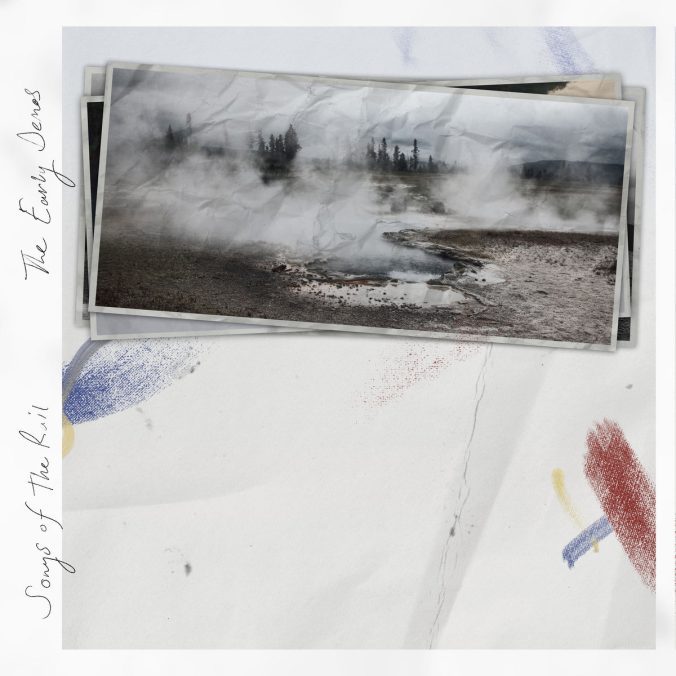 Songs of the Rail is a 28-song archive of the group’s earliest iteration, when Aaron Dowdy—in March 2018—called upon Frank Meadows, John Wallace and Avery Sullivan to help him turn a batch of demos into full-band versions, all before the name Fust had even registered. This album, however, is not a collection of sketches; Songs of the Rail arrives nearly as complete as Genevieve did last summer. Songs of the Rail shines in batches, most notably in a string of four tracks at the end of the album that I keep returning to—“Ban the Way I Look, pt. II,” “Mingled, Mingling,” “Passing on Patience” and “It Will Too Later Ache”—because of the guitar work on them. Dowdy and his team of players know how to do blues and honky-tonk-inspired Americana just right. And there’s something so innately beautiful and gravitational about a good six-string lick, especially one that is as mangled, jangled and sublime as the guitar we hear on “Ban the Way I Look, pt. II.” It’s a great example of Dowdy’s surreal lyricism, too, especially when he sings “Ban the way I coo and soften my bellow. Do you like it when they call you a locust? No, no, but I can’t stand to be a crow.” “Mingled, Mingling,” however, is the standout of the four, remarkably for its comely, swooning sonics that wrap so effortlessly around Dowdy’s vocals. “This life has been a disappointment, this life has been spells, doubts and reposing,” he sings. “Mingling with the wrong good people, I took them hand in hand, did a lot of them wrong, though I’d love to roam with the great ones in the light of day.”
Songs of the Rail is a 28-song archive of the group’s earliest iteration, when Aaron Dowdy—in March 2018—called upon Frank Meadows, John Wallace and Avery Sullivan to help him turn a batch of demos into full-band versions, all before the name Fust had even registered. This album, however, is not a collection of sketches; Songs of the Rail arrives nearly as complete as Genevieve did last summer. Songs of the Rail shines in batches, most notably in a string of four tracks at the end of the album that I keep returning to—“Ban the Way I Look, pt. II,” “Mingled, Mingling,” “Passing on Patience” and “It Will Too Later Ache”—because of the guitar work on them. Dowdy and his team of players know how to do blues and honky-tonk-inspired Americana just right. And there’s something so innately beautiful and gravitational about a good six-string lick, especially one that is as mangled, jangled and sublime as the guitar we hear on “Ban the Way I Look, pt. II.” It’s a great example of Dowdy’s surreal lyricism, too, especially when he sings “Ban the way I coo and soften my bellow. Do you like it when they call you a locust? No, no, but I can’t stand to be a crow.” “Mingled, Mingling,” however, is the standout of the four, remarkably for its comely, swooning sonics that wrap so effortlessly around Dowdy’s vocals. “This life has been a disappointment, this life has been spells, doubts and reposing,” he sings. “Mingling with the wrong good people, I took them hand in hand, did a lot of them wrong, though I’d love to roam with the great ones in the light of day.”
-

-

-

-

-

-

-

-

-

-

-

-

-

-

-

-

-

-

-

-

-

-

-

-

-

-

-

-

-

-

-

-

-

-

-

-

-

-

-

-

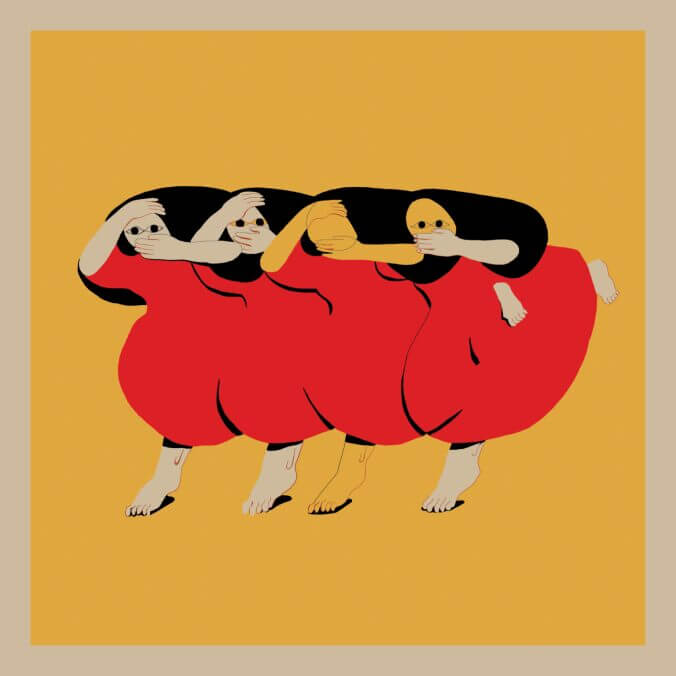 People Who Aren’t There Anymore arrives ready to remedy the band’s static, going-through-the-motions decade of performing. This is the type of album that solidifies Future Islands as a band of renaissance men who can make a sublime and meticulous genre like synth-pop feel grandiose and loose. It doesn’t quite capture the intensity of Singles, but you’d be wrong to assume it could or should. That record was the game-changer for Future Islands, a major indie label debut that gave the band the weapons they needed to make their best record. People Who Aren’t There Anymore, however, is the best-sounding Future Islands album yet, and it features some of their most bulletproof songwriting yet. It’s an extensive portrait of an “if it ain’t broke, don’t fix it” mentality.
People Who Aren’t There Anymore arrives ready to remedy the band’s static, going-through-the-motions decade of performing. This is the type of album that solidifies Future Islands as a band of renaissance men who can make a sublime and meticulous genre like synth-pop feel grandiose and loose. It doesn’t quite capture the intensity of Singles, but you’d be wrong to assume it could or should. That record was the game-changer for Future Islands, a major indie label debut that gave the band the weapons they needed to make their best record. People Who Aren’t There Anymore, however, is the best-sounding Future Islands album yet, and it features some of their most bulletproof songwriting yet. It’s an extensive portrait of an “if it ain’t broke, don’t fix it” mentality.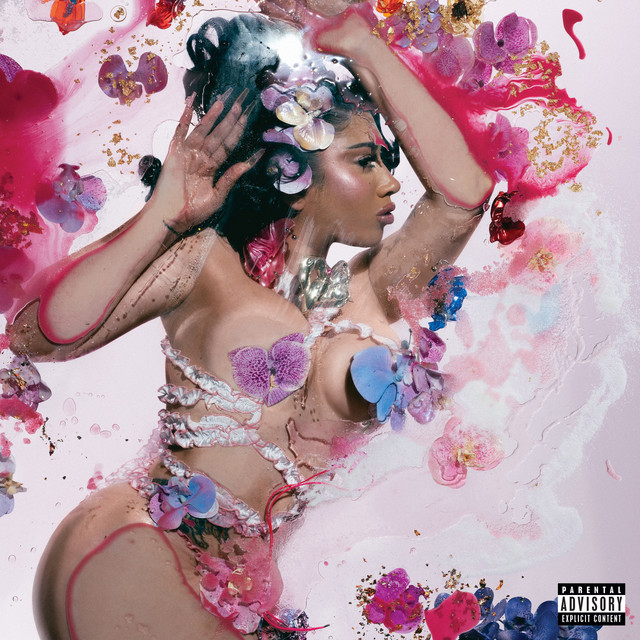 Named for Colombia’s national flower, Orquídeas is a masterful ode to Kali Uchis’ ancestral roots. A project that artfully skywalks across a variety of Latin genres, including dembow, bolero, salsa and reggaeton, the project proves to be her most sonically ambitious to date—and boasts all-star level features to boot. The album’s lead single, the dembow-tinged summer heater “Muñekita,” sees Uchis bring together legendary Dominican rapper El Alfa and the City Girls’ own JT, and she taps Peso Pluma, Mexico’s crown prince of corridos tumbados, for the dreamy, groove-heavy “Igual Que Un Ángel.” Her rap skills are on full display alongside modern Colombian trap legend Karol G on the sapphic-suffused “Labios Mordidos” and she teams up with Puerto Rican reggaeton great Rauw Alejandro for club-ready “No Hay Ley Parte 2,” a remix of her 2022 hit that she first teased during her Coachella set last April. Thematically, Orquídeas is an album that’s refreshingly rose-tinted. Uchis shows off her full vocal range on triumphant bolero self-love anthem “Te Mata” and embraces her own divine feminine on the cosmic “Diosa.” “Pensamientos Intrusivos,” the project’s standout track, unapologetically wears its heart on its sleeve, and the lush, star-crossed elation of “Young Rich & In Love” is as addictive as it is sultry. In an age of increasing social unrest, popular music has grown understandably sober. But that’s what makes a vibrant, romantic project like Orquídeas so rare, so special—and so necessary. —Elizabeth Braaten [
Named for Colombia’s national flower, Orquídeas is a masterful ode to Kali Uchis’ ancestral roots. A project that artfully skywalks across a variety of Latin genres, including dembow, bolero, salsa and reggaeton, the project proves to be her most sonically ambitious to date—and boasts all-star level features to boot. The album’s lead single, the dembow-tinged summer heater “Muñekita,” sees Uchis bring together legendary Dominican rapper El Alfa and the City Girls’ own JT, and she taps Peso Pluma, Mexico’s crown prince of corridos tumbados, for the dreamy, groove-heavy “Igual Que Un Ángel.” Her rap skills are on full display alongside modern Colombian trap legend Karol G on the sapphic-suffused “Labios Mordidos” and she teams up with Puerto Rican reggaeton great Rauw Alejandro for club-ready “No Hay Ley Parte 2,” a remix of her 2022 hit that she first teased during her Coachella set last April. Thematically, Orquídeas is an album that’s refreshingly rose-tinted. Uchis shows off her full vocal range on triumphant bolero self-love anthem “Te Mata” and embraces her own divine feminine on the cosmic “Diosa.” “Pensamientos Intrusivos,” the project’s standout track, unapologetically wears its heart on its sleeve, and the lush, star-crossed elation of “Young Rich & In Love” is as addictive as it is sultry. In an age of increasing social unrest, popular music has grown understandably sober. But that’s what makes a vibrant, romantic project like Orquídeas so rare, so special—and so necessary. —Elizabeth Braaten [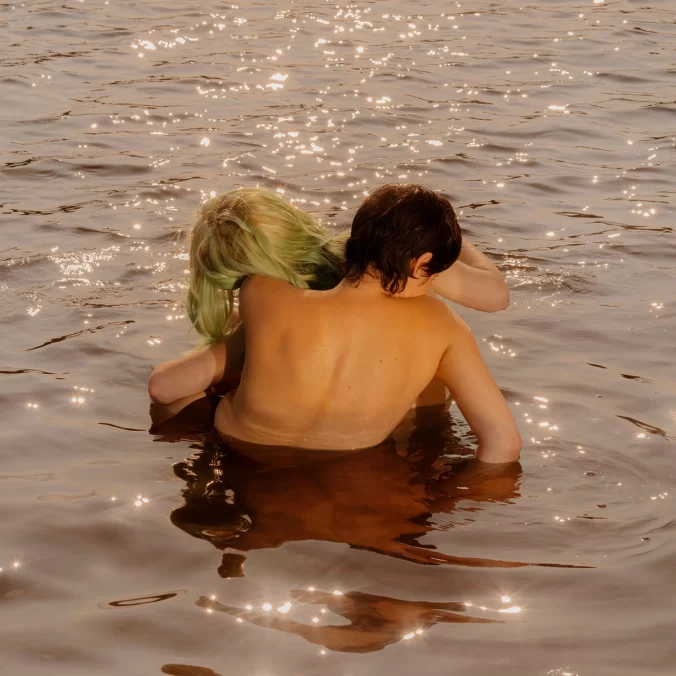 Blue Raspberry is an album emphasized by its lyrics. Kirby is a gifted conductor and a confident wordsmith, filling each song with effortless, quadrisyllabic words and tongue-in-cheek turns of phrase. The cheeky pun “Mutually assured distraction,” the LP’s opening lyrics on first song “Redemption Arc,” promise the listener a verbose, thoughtful project zeroed in on the pains and pleasures of love. So does the refrain of “Drop Dead,” the album’s centerpiece: “Let me drop dead, Gorgeous,” Kirby croons smilingly over quirky homestyle pianos and soft drums. As the song rises and falls in blurry swells, her refrain anchors it in an apologetic self-awareness. These moments are held gently by an overarching throughline to Kirby’s career, one brought from her youth in eensy Spicewood, Texas. There, she learned about music through worship songs.
Blue Raspberry is an album emphasized by its lyrics. Kirby is a gifted conductor and a confident wordsmith, filling each song with effortless, quadrisyllabic words and tongue-in-cheek turns of phrase. The cheeky pun “Mutually assured distraction,” the LP’s opening lyrics on first song “Redemption Arc,” promise the listener a verbose, thoughtful project zeroed in on the pains and pleasures of love. So does the refrain of “Drop Dead,” the album’s centerpiece: “Let me drop dead, Gorgeous,” Kirby croons smilingly over quirky homestyle pianos and soft drums. As the song rises and falls in blurry swells, her refrain anchors it in an apologetic self-awareness. These moments are held gently by an overarching throughline to Kirby’s career, one brought from her youth in eensy Spicewood, Texas. There, she learned about music through worship songs.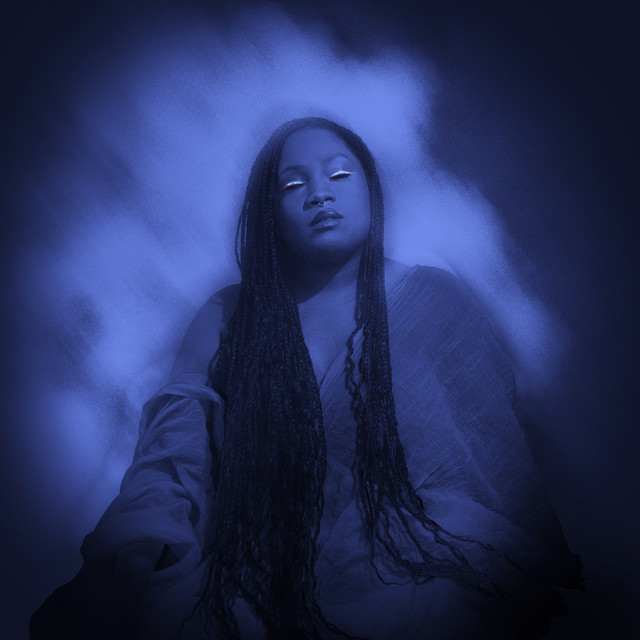 Does Nailah Hunter possess the cure for the pain she’s endured and witnessed others endure beneath the extractive gaze of our white male-dominated consumerist system? No, but she is a brilliant recorder of its resistance and a celebrator of the beauty such a system ignores in service of its own perpetuation. Lovegaze is one part soothing balm, another part great awakening about the horrors inflicted top-down in this age of anthropocentricity and the forced resilience the world has learned. Using the tools of mythmaking and psychedelia, Hunter’s vocals and harp-playing are breathtaking, levitating and shimmering in the sky like aurora borealis. Lovegaze represents a strong departure from Hunter’s origin as a composer of ambient soundscapes, but she retains one foot in the genre to help draw the spectral shapes she weaves into an arresting display of folksy alternative soul. It’s a brilliant next step into the intersection between alt-pop and New Age, offering an over-the-top spiritual experience with enlightening reflections on the power to crush and regenerate. —Devon Chodzin [
Does Nailah Hunter possess the cure for the pain she’s endured and witnessed others endure beneath the extractive gaze of our white male-dominated consumerist system? No, but she is a brilliant recorder of its resistance and a celebrator of the beauty such a system ignores in service of its own perpetuation. Lovegaze is one part soothing balm, another part great awakening about the horrors inflicted top-down in this age of anthropocentricity and the forced resilience the world has learned. Using the tools of mythmaking and psychedelia, Hunter’s vocals and harp-playing are breathtaking, levitating and shimmering in the sky like aurora borealis. Lovegaze represents a strong departure from Hunter’s origin as a composer of ambient soundscapes, but she retains one foot in the genre to help draw the spectral shapes she weaves into an arresting display of folksy alternative soul. It’s a brilliant next step into the intersection between alt-pop and New Age, offering an over-the-top spiritual experience with enlightening reflections on the power to crush and regenerate. —Devon Chodzin [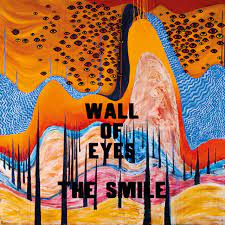 Although only eight songs long, not one track on the album clocks in under five minutes. There are frequent lush, open spaces coalescing into pensive, jammy meandering. Heavy guitar and arpeggiated picking are subbed out for more string arrangements from both Greenwood and The London Contemporary Orchestra. Wall of Eyes is a sweeping, Smile-ing symphony. This could be attributed to production duties going to Sam Petts-Davies—A Moon Shaped Pool engineer and Suspiria soundtrack co-producer—rather than long-time collaborator Nigel Godrich. Like A Moon Shaped Pool and Suspiria, Wall of Eyes is moodier and more sparse, like how a tree is in the winter. The tracks are like long branches stretching out, each textured by their own idiosyncrasies, complications and sonic movements, but are still clearly part of the same root.
Although only eight songs long, not one track on the album clocks in under five minutes. There are frequent lush, open spaces coalescing into pensive, jammy meandering. Heavy guitar and arpeggiated picking are subbed out for more string arrangements from both Greenwood and The London Contemporary Orchestra. Wall of Eyes is a sweeping, Smile-ing symphony. This could be attributed to production duties going to Sam Petts-Davies—A Moon Shaped Pool engineer and Suspiria soundtrack co-producer—rather than long-time collaborator Nigel Godrich. Like A Moon Shaped Pool and Suspiria, Wall of Eyes is moodier and more sparse, like how a tree is in the winter. The tracks are like long branches stretching out, each textured by their own idiosyncrasies, complications and sonic movements, but are still clearly part of the same root.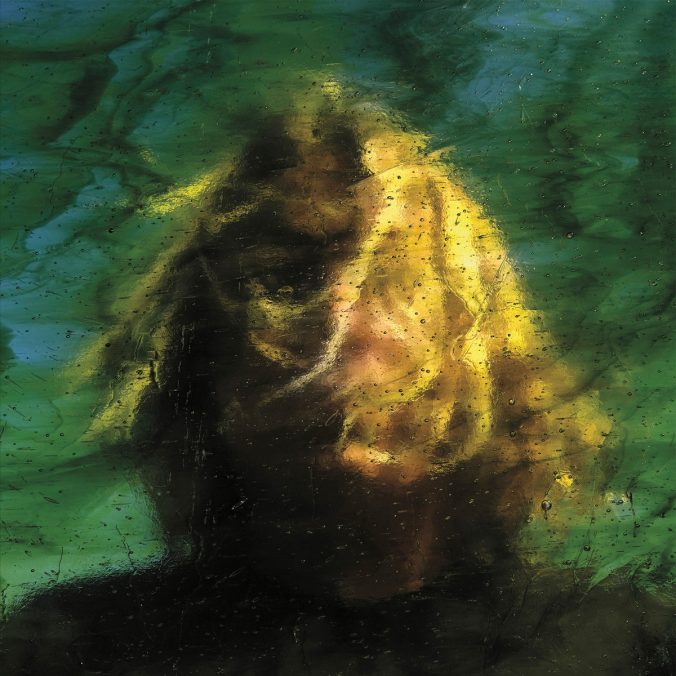 Over and over again, the tunes on Three Bells twist and turn, chasing ideas around corners, zigging when you expect them to zag and vice versa. In “The Bell,” for example, the rhythm shifts on a dime several times as the song evolves from gently woozy to a galloping buzzsaw and Segall introduces the album’s central concept: A journey to the center of the self. What exactly do the three bells represent? No idea, but the journey has begun. “Void” is the longest track on the album, hovering in increasingly chaotic suspended animation for more than three minutes before resolving into an easygoing groove and then a fuzzy final section that provides one of Three Bells’ peaks. “I Hear” sounds like a disco record slowed down by a stack of nickels on the label and “Hi Dee Dee” recalls Beck’s early-career experiments—like if Mellow Gold-era Beck made Midnite Vultures instead of mid-career Beck.
Over and over again, the tunes on Three Bells twist and turn, chasing ideas around corners, zigging when you expect them to zag and vice versa. In “The Bell,” for example, the rhythm shifts on a dime several times as the song evolves from gently woozy to a galloping buzzsaw and Segall introduces the album’s central concept: A journey to the center of the self. What exactly do the three bells represent? No idea, but the journey has begun. “Void” is the longest track on the album, hovering in increasingly chaotic suspended animation for more than three minutes before resolving into an easygoing groove and then a fuzzy final section that provides one of Three Bells’ peaks. “I Hear” sounds like a disco record slowed down by a stack of nickels on the label and “Hi Dee Dee” recalls Beck’s early-career experiments—like if Mellow Gold-era Beck made Midnite Vultures instead of mid-career Beck.






































